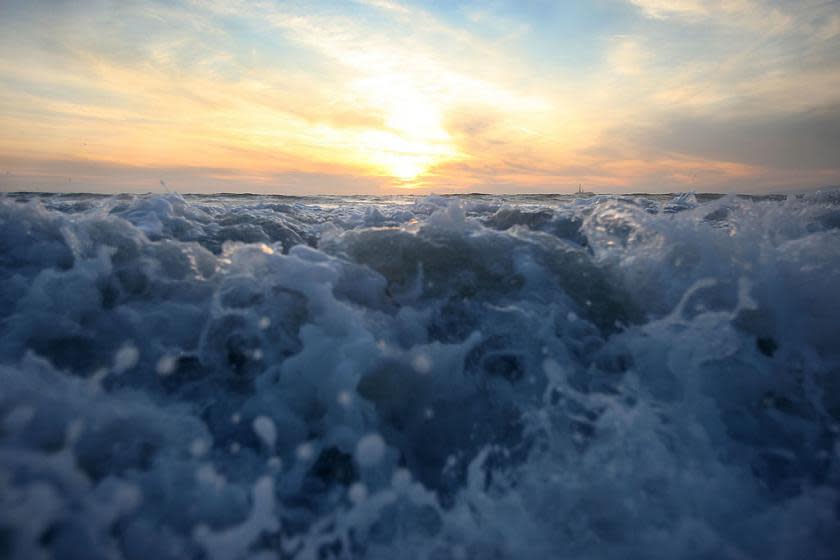Study finds California coastal waters are twice as acidic as the global average

A new study led by the National Oceanic and Atmospheric Administration has found that waters off the coast of California are acidifying twice as fast as the global average.
Scientists looked at nearly 2,000 shells of a microscopic animal called foraminifera. They measured deposits on the shells and determined that over a century dating back to 1895, the waters had a 0.21 decline in pH, more than double the global average of 0.1. When carbon dioxide mixes with seawater, a chemical reaction makes the water more acidic; since the Industrial Revolution, the ocean has absorbed more than a quarter of the carbon dioxide released by humans and roughly 90 percent of the resulting heat, the Los Angeles Times reports.
"While the ocean has served a very important role in mitigating climate change by absorbing CO2 from the atmosphere, there's a capacity at which the ocean can't absorb anymore," NOAA researcher and study lead Emily Osborne said. "From this study, and so many other published studies, there's no question that the answer is to curb our carbon emissions."
Researchers also made an unexpected discovery, finding that the Pacific Decadal Oscillation, a natural warming and cooling cycle, plays a role in ocean acidification, making it better or worse depending on whether its warm or cool. The study was published Monday in the journal Nature Geoscience.
More stories from theweek.com
Late night hosts gawk at Trump's 'deranged' and 'incoherent' pre-impeachment 'shriek' at Nancy Pelosi
How the fall of Elizabeth Warren has shaken up the 2020 race
Adam Driver reportedly walks out of NPR interview after not wanting to listen to himself in Marriage Story

